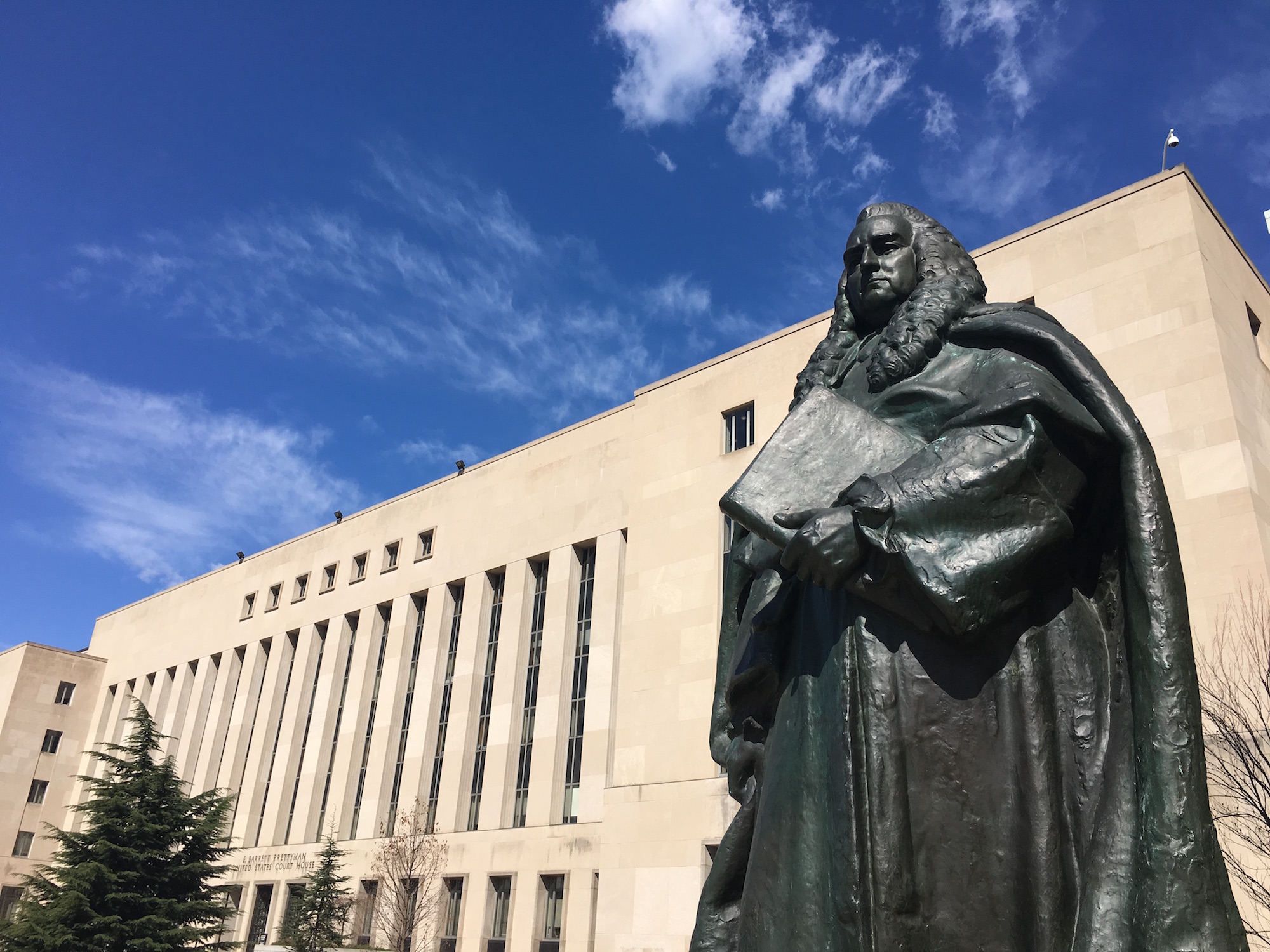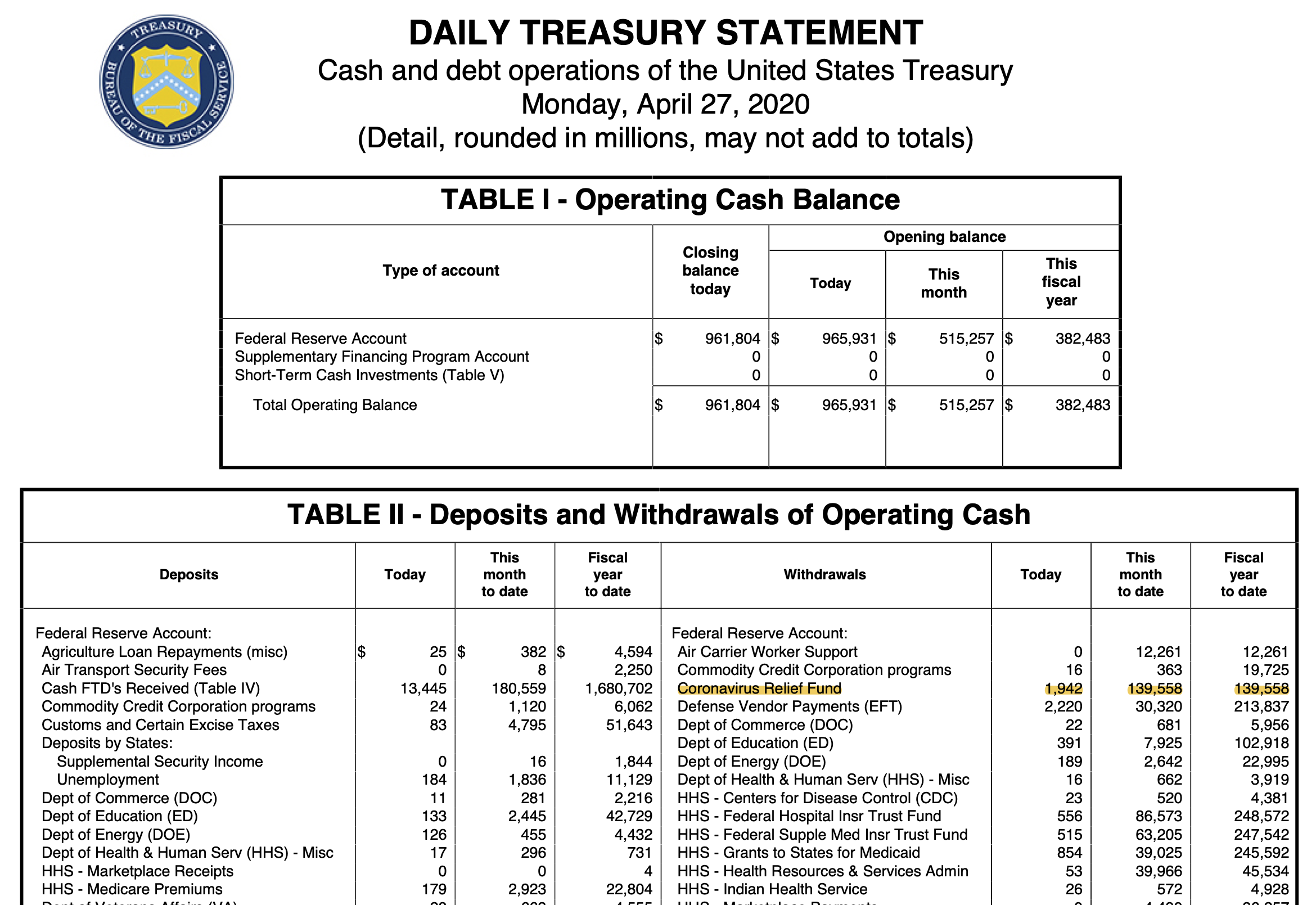
The E. Barrett Prettyman United States Courthouse houses both the federal court for the District of Columbia and the Circuit Court of Appeals for the District of Columbia Circuit. Photo by Indianz.Com (CC BY-NC-SA 4.0)
The federal judge assigned to the CARES Act lawsuit ordered the parties to submit a status report by May 1, 2020, following a landmark ruling affecting $8 billion in coronavirus relief promised to tribal governments.
Judge Amit P. Mehta issued the order on April 28. He said the forthcoming Joint Status Report should propose a “schedule for further proceedings in this matter.”
“The Joint Status Report shall also update the court on any developments in the disbursement of Title V funds to federally recognized Indian tribes, as well as any funds withheld from ANCs pursuant to the court’s preliminary injunction order,” the order reads.
On April 27, Mehta granted a preliminary injunction requested by the tribal plaintiffs in the case. He temporarily barred the Department of the Treasury from distributing any of the $8 billion to Alaska Native corporations (ANCs) because he found that they do not qualify as “tribal governments” under Title V of the Coronavirus Aid, Relief and Economic Security Act, also known as the CARES Act.
The decision was based on a reading of the Indian Self-Determination and Education Assistance Act (ISDEAA) that have been heavily debated in the litigation.
“As no known ANC satisfies ISDEAA’s eligibility clause, no ANC can partake in the $8 billion funding set aside for tribal governments,” Mehta wrote.

The Coronavirus Relief Fund continues to be depleted as state and local governments claim their shares. Of the $150 billion, $8 billion has been set aside for tribal governments. Source: Daily Treasury Statement, April 27, 2020.
Since the ruling, Treasury has not stated how it will distribute the $8 billion to tribes. Previously, the agency determined that Alaska Native regional and village corporations, of which there are more than 200, were eligible for shares of the coronavirus relief fund.
Overall, Congress set aside $150 billion for tribal, state and local governments. The $8 billion promised to tribal governments comes from the total.
According to Treasury’s Daily Statement from April 27, which is the latest available as of April 28, state and local governments have received almost all of the funding promised to them.
The $8 billion coronavirus relief fund is the subject of 3 lawsuits, all of which have been consolidated. The plaintiffs in Confederated Tribes of the Chehalis Reservation v. Mnuchin are:
- Confederated Tribes of the Chehalis Reservation (Washington)
- Tulalip Tribes (Washington)
- Houlton Band of Maliseet Indians (Maine)
- Akiak Native Community (Alaska)
- Asa’carsarmiut Tribe (Alaska)
- Aleut Community of St. Paul Island (Alaska)
- Navajo Nation (Arizona, New Mexico, Utah)
- Quinault Nation (Washington)
- Pueblo of Picuris (New Mexico)
- Elk Valley Rancheria (California)
- San Carlos Apache Tribe (Arizona)
The plaintiffs in Cheyenne River Sioux Tribe v. Mnuchin are:
- Cheyenne River Sioux Tribe (South Dakota)
- Rosebud Sioux Tribe (South Dakota)
- Oglala Sioux Tribe (South Dakota)
- Nondalton Tribal Council (Alaska)
- Native Village of Venetie (Alaska)
- Arctic Village Council (Alaska)
The third case is Ute Indian Tribe of the Uintah and Ouray Indian Reservation v. Mnuchin. The sole plaintiff is:
- Ute Indian Tribe (Utah)
- DECISION: Confederated Tribes of the Chehalis Reservation v. Mnuchin
- ORDER: Granting Motions for a Temporary Restraining Order and Preliminary Injunction
Indian Health Service Announces New Deputy Director for Quality Health Care and Enterprise Risk Management (Indian Health Service)
Federal Emergency Management Agency (FEMA)
White House Office of Management and Budget (Joe Biden Administration)
Tuba City Regional Health Care Corporation (Arizona, Navajo Nation)
Oklahoma City Indian Clinic (OKCIC)
Indian Health Service (Department of Health and Human Services)
Navajo Nation Town Hall (Arizona, New Mexico, Utah)
Navajo Nation (Arizona, New Mexico, Utah)
Tribal organizations statement on advance appropriations for Indian Health Service
Indian Health Service Statement on Advance Appropriations (Department of Health and Human Services)
Indian Health Service (Department of Health and Human Services)
Indian Health Service (Department of Health and Human Services)
Navajo Nation (Arizona, New Mexico, Utah)
Indian Health Service (Department of Health and Human Services)
